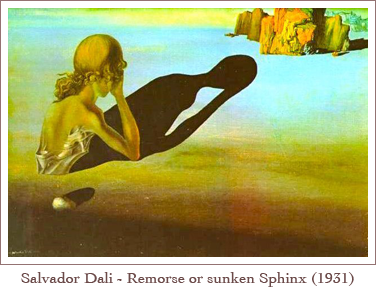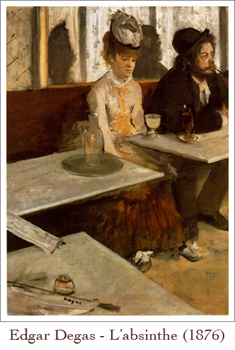•
the Blog
Did Mendel fake his results? 
By Guillaume Filion, filed under
statistics,
p-hacking,
genetics,
fraud.
• 11 April 2016 •
 You went to high school and you learned genetics. You heard about a certain Gregor Mendel who crossed peas and came up with the idea that there is a dominant and a recessive allele. You did not particularly like the guy because there would always be a question about peas with recessive and dominant alleles at the exam. But you grew up, became wiser and just as you started to like him, you heard from someone that he faked his data. You felt disoriented for a while, why annoy you with this stuff at school if it is wrong? But then you came to the conclusion that he just got lucky and that he was right for the wrong reasons. After all, he was just a monk on gardening duties, why would you expect him to understand anything about real science?
You went to high school and you learned genetics. You heard about a certain Gregor Mendel who crossed peas and came up with the idea that there is a dominant and a recessive allele. You did not particularly like the guy because there would always be a question about peas with recessive and dominant alleles at the exam. But you grew up, became wiser and just as you started to like him, you heard from someone that he faked his data. You felt disoriented for a while, why annoy you with this stuff at school if it is wrong? But then you came to the conclusion that he just got lucky and that he was right for the wrong reasons. After all, he was just a monk on gardening duties, why would you expect him to understand anything about real science?
Gregor Mendel
Gregor Mendel was a monk, but he was also a trained scientist. He studied assiduously for twelve years (including about seven years on physics and mathematics), to then become a teacher of physics and natural sciences at the gymnasium of Brno. He prepared his most famous experiment for two years, meticulously checking and choosing his...
Genetics and racism (2)
By Guillaume Filion, filed under
craniometry,
genetics,
racism,
series: genetics and racism.
• 19 January 2013 •
In the first post of this series on genetics and racism, I explained how Richard Lewontin concluded from his work on human diversity that human races are of no value for taxonomy (the classification of living begins). This view was later criticized and even termed Lewontin's fallacy by A. W. F. Edwards. Yet, nobody ever doubted that Lewontin was honest in his approach. But more recently came another case that gives the shivers. The great Stephen Jay Gould, the author of the acclaimed Mismeasure of Man was accused of data manipulation.

The mismeasure of Gould
Stephen Jay Gould was this kind of scientist who pops up everywhere. I discovered him in a comment about the opinion of the Vatican on Evolution, others knew him for his statistical analyses of baseball records, while he was actually a paleontologist, author of the theory of punctuated equlibrium. But his most famous work is undoubtedly The Mismeasure of Man.
Like the author, the book is a strange chimera, somewhere in between scientific research and history, with a touch of lyricism. The Mismeasure of Man is a journey through the differences between people, or more precisely through the scientific discourse over this...
Genetics and racism (1)
By Guillaume Filion, filed under
variability,
crimestop,
genetics,
series: genetics and racism.
• 30 December 2012 •
Important note: Please read the Erratum at the end of the post.
Tolstoy’s remorse
It is 1879. Leo Tolstoy, then rich and famous for War and Peace and Anna Karenina works on another kind of text.
 In A Confession he explains at length that he regrets writing those novels. The focus of his remorse and his anger towards himself is the heart of his talent, this innate sense of human nature. Tolstoy's pen had no equal when it came to paint the Russian society of the time, its characters and its culture. However, he explains that this attitude towards writing is wrong, because he has been telling without preaching, he has been describing without judging. He will even abandon the royalties of War and Peace and Anna Karenina, refusing to earn money from such immoral writings.
In A Confession he explains at length that he regrets writing those novels. The focus of his remorse and his anger towards himself is the heart of his talent, this innate sense of human nature. Tolstoy's pen had no equal when it came to paint the Russian society of the time, its characters and its culture. However, he explains that this attitude towards writing is wrong, because he has been telling without preaching, he has been describing without judging. He will even abandon the royalties of War and Peace and Anna Karenina, refusing to earn money from such immoral writings.
We were all then convinced that it was necessary for us to speak, write, and print as quickly as possible and as much as possible, and that it was all wanted for the good of humanity. And thousands of us, contradicting and abusing one another, all printed and wrote — teaching others. And without noticing that we knew nothing, and that...
Is there a gene for alcoholism? (2)
By Guillaume Filion, filed under
information,
genetics,
neurogenetics,
genetic determinism,
series: is there a gene for alcoholism?,
missing heritability.
• 17 October 2012 •
 In the post Is there a gene for alcoholism? I explained how claims to discover the gene for such and such complex behavior (mostly alcoholism and homosexuality) are based on correlations that are never confirmed by experimentation. We will have to wait until neurogenetics comes of age before we can seriously tackle this kind of question. But when that happens, how likely is it that we really discover a gene for alcoholism?
In the post Is there a gene for alcoholism? I explained how claims to discover the gene for such and such complex behavior (mostly alcoholism and homosexuality) are based on correlations that are never confirmed by experimentation. We will have to wait until neurogenetics comes of age before we can seriously tackle this kind of question. But when that happens, how likely is it that we really discover a gene for alcoholism?
To make my point come across, I will have to touch a few words about the problem of missing heritability. According to current estimates, the human genome consists of ~ 25,000 protein-coding genes and about as many non protein-coding RNAs, the function of which still remains to be established. The implicit meaning of "gene for alcoholism" is actually a mutation that would somehow affect one of these ~ 50,000 functional entities.
Mutation is somewhat inaccurate in this context as we should speak of polymorphism. A piece of our genome is monomorphic if everybody has exactly the same sequence, otherwise, it is polymorphic. The vast majority of polymorphic sequences in humans are SNPs (single-nucleotide polymorphisms), i.e. sequences that differ by only one nucleotide...
Is there a gene for alcoholism? (1)
By Guillaume Filion, filed under
causality,
genetics,
series: is there a gene for alcoholism?,
independence,
information.
• 26 August 2012 •
This is usually the next thing I hear when I say that I am a geneticist. Behind this question and its variants lies a profound and natural interrogration, which could be phrased as "how much of me is the product of my genes?" I made a habit of not answering that question but instead, highlight its inaneness by lecturing people about genetics. So, for once, and exclusively on my blog, here is the tl;dr answer: no, there is not. Now comes the lecture about genetics.
I will start with mental retardation — unrelated with my opinion of those claims, really — and more precisely with the fragile X syndrome. James Watson, the co-discoverer of the structure of DNA and the pioneer of the Human Genome Project declared:
I think it was the first triumph of the Human Genome Project. With fragile X we've got just one protein missing, so it's a simple problem. So, you know, if I were going to work on something with the thought that I were going to solve it, oh boy, I'd work on fragile X.
In other words, there seems to be a gene for mental retardation. The incidence...

